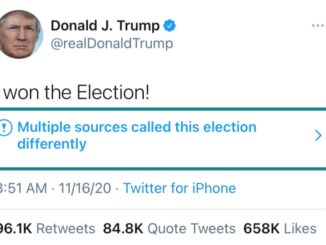
photo credit: Valentina Urbaez
For those who have been following the news, I’m sure the name Lahaina or Maui triggers a memory associated with fire. Or how it feels like every couple of months California bursts into flames yet again. Or, the Canadian fires that have crept their way south and forced a four-day wildfire watch, while Ohioans feel immune to it. And, how could we forget what felt like the entire month of June under air quality warnings thanks to Ohio’s proximity to Canada.
Given their frequency, the country has experienced its fair share of wildfires and has always managed to tame them. Eventually. It’s interesting to see how people hear the words “global warming” or “climate change” and roll their eyes as they’ve heard it for the 100th time; and still not quite understand the implications.
Regardless of when or where they hit, the effects of these wildfires will soon become inevitable if people’s well-trodden path to ecological destruction continues down the same path. Although dramatic, for the sake of everyone’s lives and lungs, Americans may want to consider caring for the state of our planet.
The lack of understanding is what seems to hold the confusion that hangs in the air around these fires and what encourages them to grow harsher and stronger each time they hit. These problems are not as simple as the Earth getting warmer and therefore the trees just ignite.
The rising temperatures have quickly led spring to approach a lot sooner than necessary. This forces snow to melt faster, which dries out soil earlier and longer than what is sustainable. Months of dry spells in densely wooded areas, coupled with the heat, offer the mounds of kindling necessary to spark a wildfire, according to the Environmental Defense Fund.
The dry and dying trees are unfortunately sitting waiting for the next human accident to light them. The 7,000 acres worth of forest lost to in the El Dorado fires was ignited by a “smoke generating pyrotechnic device.” A tool that sounds straight out of an action movie, but of course was necessary for the gender reveal party that was to blame for the fires.
Let us venture back to California 2018 where, according to the Los Angeles Times, a man trying to plug up a wasp nest with a hammer and stake, was able to burn over 460,000 acres of land.
However, not all wildfires are created equal and though they’re not always started by human negligence, humanity’s footprint can usually be found at the scene. According to CBS News, Canada’s dry weather encourages more lightning in its boreal forest, producing fires. Though it has been found that with every one-degree Celsius increase produces a 12 percent spike in lightning; and the more the planet continues to burn, people will go down with it.
The already harsh weather conditions made it much more difficult to keep the fires under control. No level of preparation could have kept that thick orange smog from infecting the Midwest and East Coast while it was being battled.
Climate change and the shift in weather patterns encourage the heavy dry seasons America keeps finding itself buried in. If the people of Ohio somehow find themselves relieved to be nestled in the seemingly untouched part of the Midwest, let it be a reminder that temperature doesn’t pick and choose where it spreads.
According to the Ohio State University’s department of arts and science, lack of snowfall is found to lead to more exposure to Lyme disease. The increase in warm temperatures and shorter feeling winters welcome ticks and other insects by the hundreds that carry disease.
Ohio’s historical infrastructure is not built to withstand extreme precipitation events and as years go on with no change the state will continue to find itself in an uncomfortable position over the climate.
I recommend that the skeptics go take another look at “The Lorax” and remember the saying, “unless someone like you cares a whole awful lot, nothing is going to get better. It’s not.” And see how children somehow understand this concept more than the adults in charge of tackling problems people have created and take issue with it.


